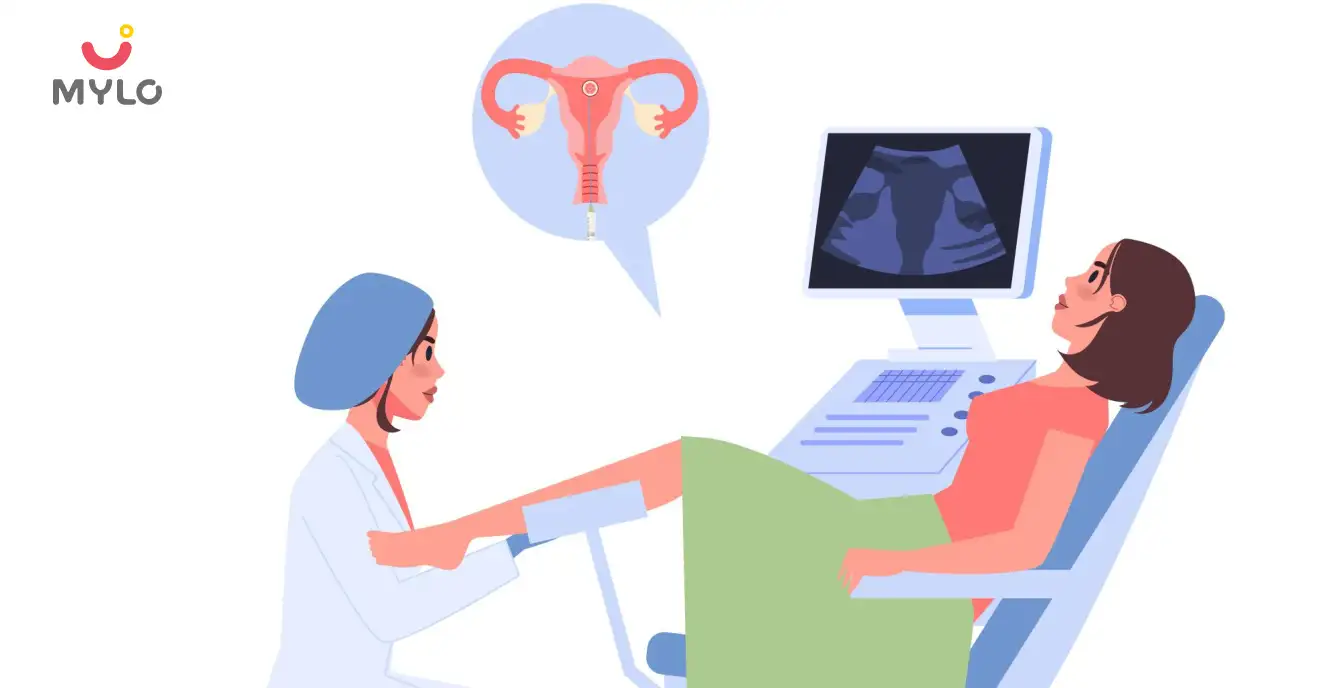Home

IVF Failure Reasons: Exploring the Challenges Couples Face with Infertility
In this Article

Pregnancy
IVF Failure Reasons: Exploring the Challenges Couples Face with Infertility
Updated on 14 June 2023
Did you know that despite the advancements in technology, the success rates of IVF remain far from perfect? In fact, according to studies, the average success rate of a single IVF cycle ranges between 30-35%. This means many couples experience the heartache of IVF failure, a devastating blow that can shake even the strongest spirits.
In this thought-provoking exploration, we will understand the complexities of IVF failure, uncovering the causes of IVF failure while pursuing parenthood. From underlying medical factors to the emotional toll, it takes on couples, we will navigate this sensitive terrain with empathy and understanding.
Symptoms of IVF Failure
When undergoing in vitro fertilization (IVF), couples eagerly hope for a positive outcome, longing for the joy of pregnancy and the arrival of a precious baby. IVF failure symptoms can vary from person to person and may include:
-
Absence of pregnancy symptoms
-
Negative pregnancy test
-
Menstrual period
-
Emotional distress
Remember, IVF failure does not define your journey to parenthood; with resilience and perseverance, new paths and opportunities may arise.
Also read: 7 Most Popular IVF Myths Busted
Causes of IVF Failure: Why IVF Fails?
After investing all their finances and hopes, couples look for IVF failure reasons, and they must understand that although IVF failure can vary, several common factors contribute to the outcome.
-
Embryo quality
-
Implantation issues
-
Ovarian response
-
Age-related factors
-
Hormonal imbalances
-
Sperm-related issues
-
Lifestyle factors
You may also like: In-Vitro Fertilization - The Process & Why is it Needed?
Understanding the Different Factors that Contribute to IVF Failure
Understanding why IVF fails can provide insight into the challenges couples face with infertility and help navigate the journey with greater knowledge and resilience.
-
Embryo quality
The quality of embryos used in IVF plays a crucial role in determining the chances of success. If the embryos have genetic abnormalities or are not of optimal quality, they may fail to implant in the uterus or result in early pregnancy loss.
-
Implantation issues
Successful implantation of the embryo is essential for a viable pregnancy. Factors such as a receptive uterine lining, appropriate embryo development, and synchronization between the embryo and the uterus are crucial for successful implantation. Disruptions in any of these factors can lead to IVF failure.
-
Ovarian response
The stimulation phase of IVF aims to retrieve multiple eggs for fertilization. However, suppose the ovaries do not respond adequately to the stimulation medications. In that case, it can result in fewer or lower-quality eggs retrieved, reducing the chances of successful fertilization and embryo development.
-
Age-related factors
Advanced maternal age is associated with decreased fertility and lower IVF success rates. As women age, the quality and quantity of their eggs diminish, making it more challenging to achieve a successful pregnancy through IVF.
-
Hormonal imbalances
Hormonal imbalances, such as high follicle-stimulating hormone (FSH) or luteinizing hormone (LH), can affect egg quality and ovulation. Imbalances in hormone levels can interfere with successful fertilization and implantation, contributing to IVF failure.
-
Uterine abnormalities
Structural abnormalities or issues with the uterus, such as fibroids, polyps, or adhesions, can hinder embryo implantation and development. These uterine factors can contribute to IVF failure if not addressed.
-
Sperm-related issues
Male factor infertility, including low sperm count, poor sperm motility, or abnormal sperm morphology, can impact IVF success. If the quality of sperm used for fertilization is compromised, it can affect embryo development and decrease the chances of a successful pregnancy.
-
Lifestyle factors
Lifestyle factors, such as smoking, excessive alcohol consumption, obesity, and poor nutrition, can also negatively impact IVF outcomes and be among the IVF failure reasons. Adopting a healthy lifestyle before and during IVF treatment can improve the chances of success.
You may also like: IVF Process Step by Step Timeline: What to Expect During Your Fertility Journey
3 Failed IVF Cycles, What Next?
Why IVF cycles fail is a matter of huge emotional and physical turmoil for couples eagerly hoping for a successful pregnancy. Each failed attempt brings a wave of disappointment and uncertainty, leaving couples wondering what their next steps should be.
-
Review and analyze
Take the time to review and analyze your previous IVF cycles with your fertility specialist. Understand the factors contributing to the failures, such as embryo quality, implantation issues, or hormonal imbalances.
-
Seek a second opinion
Consider seeking a second opinion from another fertility specialist. Experts may have alternative perspectives, treatment approaches, or recommendations offering new insights and possibilities.
-
Diagnostic tests and evaluations
Further diagnostic tests and evaluations can help identify any underlying issues contributing to the failed IVF cycles. These tests may include assessing ovarian reserve, uterine abnormalities, genetic screening, or evaluating sperm quality.
-
Consider alternative treatments
If traditional IVF has not yielded the desired results, explore alternative treatments such as donor eggs or sperm, gestational carriers, or other assisted reproductive technologies. These options may increase the chances of achieving a successful pregnancy.
-
Emotional support
Coping with failed IVF cycles can be emotionally challenging. Seek support from loved ones, join support groups, or consider counseling or therapy to help navigate the emotional rollercoaster. Taking care of your mental and emotional well-being is essential during this time.
-
Take a break if needed
Going through multiple IVF cycles can be physically and emotionally exhausting. It's okay to take a break, give yourself time to heal, and reassess your options.
-
Explore other paths to parenthood
If IVF is not yielding the desired results, it may be worth considering alternative paths to parenthood, such as adoption or fostering.
Coping with IVF Failure: What to Do Next?
Now that you know the IVF failure symptoms and reasons, coping with the disappointment and uncertainty that follows can feel overwhelming, but it's important to remember that you are not alone. Here are some steps to help you navigate through this difficult period and determine what to do next:
-
Allow yourself to grieve
-
Seek support
-
Understand why IVF fails
-
Explore different options
-
Take a break if needed
-
Consider other paths to parenthood
-
Focus on self-care
Also read: First Period After Failed IVF Cycle: What to Expect and How to Cope
Options for Couples After IVF Failure
Experiencing IVF failure can be disheartening, but it doesn't mean the end of your journey toward parenthood. There are several options for couples to consider after IVF failure, including:
-
Retry IVF
Some couples undergo another round of IVF with modifications to the treatment plan based on the insights gained from the previous failed cycles. This could include adjusting medication protocols, addressing any underlying issues, or selecting a different approach to improve the chances of success.
-
Donor Egg or Sperm
If there are concerns about the quality of eggs or sperm, using donor eggs or sperm can be an option. This allows couples to experience pregnancy and childbirth using a donor's genetic material.
-
Embryo Adoption
Embryo adoption involves using embryos created by another couple during their IVF process. This option allows you to experience pregnancy and childbirth while adopting embryos from couples who have completed their family-building journey.
-
Surrogacy
In cases where a woman cannot carry a pregnancy to term, surrogacy provides an alternative option. A gestational surrogate can carry the embryo from your eggs and sperm, allowing you to become parents genetically related to the child.
-
Adoption
Adoption is a wonderful way to build a family and provide a loving home to a needy child. There are various adoption paths, including domestic and international, which can offer fulfilling and rewarding experiences for couples seeking to become parents.
-
Foster Parenting
Foster parenting allows couples to provide temporary care and support to children who need a safe and nurturing environment. It can be a meaningful way to positively impact a child's life and potentially lead to adoption if the opportunity arises.
Preventing IVF Failure: Tips and Strategies
While IVF failure reasons cannot be completely prevented, couples can consider certain tips and strategies to optimize their chances of success. Here are some preventive measures to increase the likelihood of a successful IVF outcome:
-
Choose a reputable fertility clinic
-
Understand the underlying causes
-
Optimize lifestyle factors
-
Consider pre-implantation genetic testing (PGT)
-
Follow medication protocols diligently.
-
Optimal embryo selection
Also read: Recurrent Implantation Failure
Conclusion
IVF failure can bring feelings of anxiety and frustration amongst couples, but the essential part is to remember that there is always light at the end of the tunnel. The article discussed IVF failure reasons in detail and also presented different options after IVF failure. Going through IVF can be emotionally challenging, especially in the face of previous failures. Seek emotional support from your partner, friends, family, or support groups. Engage in activities that help you relax and reduce stress, such as meditation, yoga, or counseling.
References
1. Bashiri, A., Halper, K. I., & Orvieto, R. (2018). Recurrent Implantation Failure-update overview on etiology, diagnosis, treatment and future directions. Reproductive Biology and Endocrinology, 16(1).
2. Simon, A., & Laufer, N. (2012). Assessment and treatment of repeated implantation failure (RIF). Journal of Assisted Reproduction and Genetics, 29(11), 1227–1239.



Written by
Ravish Goyal
Official account of Mylo Editor
Read MoreGet baby's diet chart, and growth tips

Related Articles
Related Questions
Influenza and boostrix injection kisiko laga hai kya 8 month pregnancy me and q lagta hai ye plz reply me

Hai.... My last period was in feb 24. I tested in 40 th day morning 3:30 .. That is faint line .. I conculed mylo thz app also.... And I asked tha dr wait for 3 to 5 days ... Im also waiting ... Then I test today 4:15 test is sooooo faint ... And I feel in ma body no pregnancy symptoms. What can I do .

Baby kicks KB Marta hai Plz tell mi

PCOD kya hota hai

How to detect pcos

Related Topics
RECENTLY PUBLISHED ARTICLES
our most recent articles

Ayurveda & Homeopathy
Putrajeevak Beej: The Ancient Seed for Modern Health and Fertility

Fertility
Shivlingi Beej: The Ultimate Guide to Boosting Your Fertility Naturally

Ayurveda & Homeopathy
Milk Thistle in Ayurveda: Unlock The Healing Potential and Health Benefits of This Herb

Medical Procedures
Orchidopexy: All You Need to Know About Its Procedure, Risks, and Recovery

Reproductive health
Transvaginal Ultrasound: A Non-Invasive Tool for Early Detection of Reproductive Health Issues

Diet & Nutrition
New Mom Diet Plan – Month 11 Week 42
- Ejaculatory Duct Obstruction: How It Affects Male Fertility and What You Can Do About It
- Testicular Ultrasound: What You Need to Know About the Procedure and Its Benefits
- Symptoms of Low AMH to Watch Out For: A Health Alert for Women Trying to Conceive
- Hysteroscopy: Everything You Need to Know About This Minimally Invasive Procedure
- Dalchini: How This Herb Can Make Way From Your Spice Rack to Your Medicine Cabinet
- Fenugreek Powder: Health Benefits of Fenugreek From Your Kitchen to Your Medicine Cabinet
- Moringa Powder: The Superfood You Need in Your Diet for a Healthy Lifestyle
- Genital Herpes: Causes, Symptoms, Risks & Treatment
- Ashokarishta: All You Need to Know About This Miracle Tonic for Women
- 10 Amazon Prime Movies to Look Forward to in 2023
- 10 Best Netflix Movies to Watch Out For in 2023
- Fertility Yoga: A Natural Solution to Boost Your Chances of Conception
- How to Get Regular Periods Naturally: Ayurvedic Herbs, Lifestyle Changes & Homeopathy
- Lodhra: The Wonder Herb for Women's Health


AWARDS AND RECOGNITION

Mylo wins Forbes D2C Disruptor award

Mylo wins The Economic Times Promising Brands 2022
AS SEEN IN
















- Mylo Care: Effective and science-backed personal care and wellness solutions for a joyful you.
- Mylo Baby: Science-backed, gentle and effective personal care & hygiene range for your little one.
- Mylo Community: Trusted and empathetic community of 10mn+ parents and experts.
Product Categories
baby carrier | baby soap | baby wipes | stretch marks cream | baby cream | baby shampoo | baby massage oil | baby hair oil | stretch marks oil | baby body wash | baby powder | baby lotion | diaper rash cream | newborn diapers | teether | baby kajal | baby diapers | cloth diapers |




